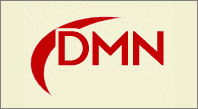Scott Nesbitt Interview with Stewart Mader on Wikis
 At Doc Train, Stewart Mader was such a popular guy that both Scott Nesbitt and I interviewed him separately. I just listened to Scott's interview while shooting hoops tonight, and I thoroughly enjoyed their exchange.
At Doc Train, Stewart Mader was such a popular guy that both Scott Nesbitt and I interviewed him separately. I just listened to Scott's interview while shooting hoops tonight, and I thoroughly enjoyed their exchange.
Scott touched on many angles I didn't cover and went more in depth. Here are several things that struck me:
- Stewart's Wikipatterns site shows wiki practices and techniques that work well in organizations. It's a wiki that anyone can contribute to. Initially he started with about 30 patterns (best practices), and through the community influence expanded to more than 100.
- Stewart is so enthusiastic about wikis that he posts his slides and talks on his site because, although someone could conceivably steal his Powerpoints, he feels the benefit of gaining a new wiki convert through the Powerpoint theft is worth it.
- Stewart wrote his Wikipatterns book using a wiki, and the editors loved it because they could quickly see Stewart's progress in writing the book. Stewart was also able to write the chapters he felt like writing (rather than proceeding chronologically). And because he travels a lot, the web-based wiki allowed him to write from anywhere he had Internet access.
- Stewart uses the term "security guards" to describe people in organizations who are defensive about contributing to wikis -- they spend their energy keeping information from others. His argument to these people is that hiding information makes them less powerful than sharing it, because when you share information, you demonstrate your knowledge and allow others to build on it. People begin to seek you out because they perceive you as an expert on a subject. You make your expertise visible.
- A lot of people aren't familiar with the term "wiki," even though wikis have been around since 1995. When this happens, try calling the wiki a "collaborative space." By the way, wiki means "quick" in Hawaiian. The unconventional name reflects the unconventional technology. And it is quick to write, edit, and publish content on a wiki.
- Stewart's strategy for wiki adoption in organizations is to start small and restrict wiki access to a limited group of people until the demand rises from the outside. He says many organizations make a wrong move by opening wiki permissions to everyone at once.
- Stewart says that big companies often invest in expensive, complex authoring tools/systems. Employees resist adopting these new tools because of the learning curve. In contrast, people are much more willing to embrace a technology that's simple.
Overall, while the wiki does have some limitations, wikis present such a major collaborative, community-based shift in the way organizations work that the benefits far outweigh any disadvantages. Stewart said he can't think of any organization that couldn't benefit in some way from a wiki.
For more on wikis, see Stewart's blog, Grow Your Wiki.
(See, you can learn a lot listening to podcasts even while playing basketball.)
Also, coming soon: Screenshots of my new wiki/blog-based SharePoint help site.
About Tom Johnson

I'm an API technical writer based in the Seattle area. On this blog, I write about topics related to technical writing and communication — such as software documentation, API documentation, AI, information architecture, content strategy, writing processes, plain language, tech comm careers, and more. Check out my API documentation course if you're looking for more info about documenting APIs. Or see my posts on AI and AI course section for more on the latest in AI and tech comm.
If you're a technical writer and want to keep on top of the latest trends in the tech comm, be sure to subscribe to email updates below. You can also learn more about me or contact me. Finally, note that the opinions I express on my blog are my own points of view, not that of my employer.
